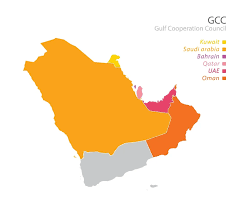Seven Predictions on Global Mobile Games in 2021 (Ⅰ)
Free Fire Shows Strong Momentum, with Its Revenue Overtaking PUBG Mobile in a Single Market for Q1 2021
Weighing the Pros and Cons: Using a Personal Loan to Tackle Credit Card Debt.
Playrix downloads exceed 1 billion
With monthly subscription of USD14.99 in Ubisoft, you can enjoy hundreds of 3A games!
The Games Fund Launched a $50 Million Early Investment Fund to Invest in American and European Companies




Saudi Arabia is actively getting rid of the stereotype of a theocracy as a Rentier State. With the emerge of 1980s crown Prince Salaman Jr. on the international political stage, Saudi Arabia is experiencing a top-down youth reform.
Saudi Arabia Vision 2030 aims to diversify its economy away from the country’s dependence on the oil industry and develop public services such as health, education, infrastructure, recreation, and tourism. This is an ambitious but realistic blueprint.

The year 2020 will not be an ordinary year. The impact of collapsing oil prices and COVID-19 has also made Saudi Arabia realize the importance of accelerating the development of non-oil trade and the digital transformation of the whole industry. Among the many industries covered by Vision 2030, e-commerce will be one of the key sectors to be supported.
The development plans of its related supporting industries are classified into four directions:
Promoting the development of e-commerce
Strengthening digital infrastructure
Establishing a unique regional logistics hub
Regional and international integration
Promoting the development of e-commerce
From 2006 to 2016, retail sales grew at an annual rate of 10 percent. As of 2016, traditional retail still accounts for 50 percent of the Saudi market, compared with about 20 percent in the other Gulf states, and modern trade and e-commerce have an extremely limited share of the Saudi retail market. Saudi Arabia wants to increase the contribution of modern trade and e-commerce to retail to 80 percent. The country will do this by attracting local and international retail investors and easing restrictions on ownership and foreign investment. To this end, Saudi Arabia will improve the flow of goods locally and regionally and introduce the necessary industry regulations. It will also increase financial support for small retail businesses to encourage their development.
Strengthening digital infrastructure
Sound digital infrastructure is essential for today’s advanced industrial activities. It can attract investors and strengthen the core competitiveness of the Saudi economy. The state will work with private companies to develop telecommunications and IT infrastructure, especially high-speed broadband, to expand its coverage and capacity in and around cities, and to improve network quality. The target is 90 percent high-speed broadband coverage in densely populated areas and 66 percent in suburbs. Saudi Arabia will also set building standards to facilitate the construction of broadband networks. Saudi Arabia will strengthen government oversight of digital information through national committees. In addition, the state will optimize relevant regulations and establish effective partnerships with telecom operators to better develop this important infrastructure. The state will also support local investments in telecommunications and IT.
Establishing a unique regional logistics hub

Saudi Arabia has invested greatly in ports, railways, roads, and airports. To take full advantage of these investments, the state plans a series of new international partnerships with private companies to improve our infrastructure and build infrastructure networks that connect both at home and abroad. The country will use more efficient systems and basic hardware which include more rigorous government management, more simplified procedures, and more efficient customs systems. The state will optimize and implement existing laws and regulations, encourage air, sea, and other transport operators to expand capacity, establish sustainable links between trade hubs and open new trade routes. This will consolidate Saudi Arabia’s position as a logistics hub on three continents. By 2030, Saudi Arabia aims to increase its logistics performance index from 49 to 25 and ensure its leadership position in the region.
Regional and international integration
One of Saudi Arabia’s primary concerns is to consolidate and strengthen its internal links and economic integration with the Gulf Cooperation Council countries. The state will work to accelerate the process of establishing a common market among Gulf Cooperation Council countries, uniform the tariff, economic and legal systems, and build a joint road and rail network. Saudi Arabia has sought to build effective links with other countries in the middle east and north African region through improved logistics services and new cross-border infrastructure projects, including land transport into Africa through Egypt. Logistics and trade flows will be simplified, consolidating Saudi Arabia’s position as a pre-eminent regional trading hub.